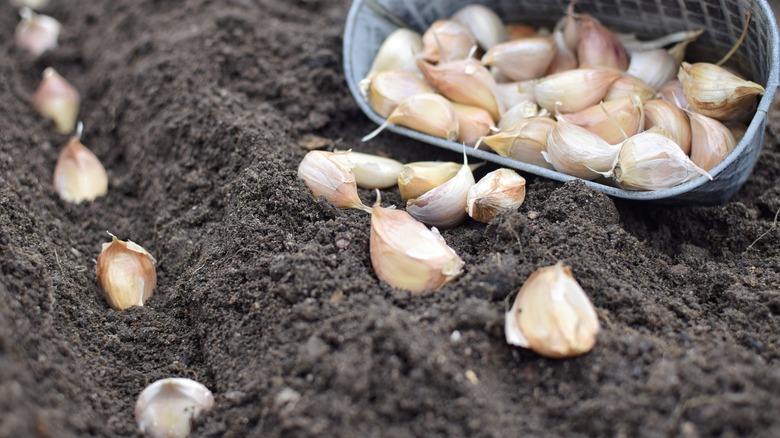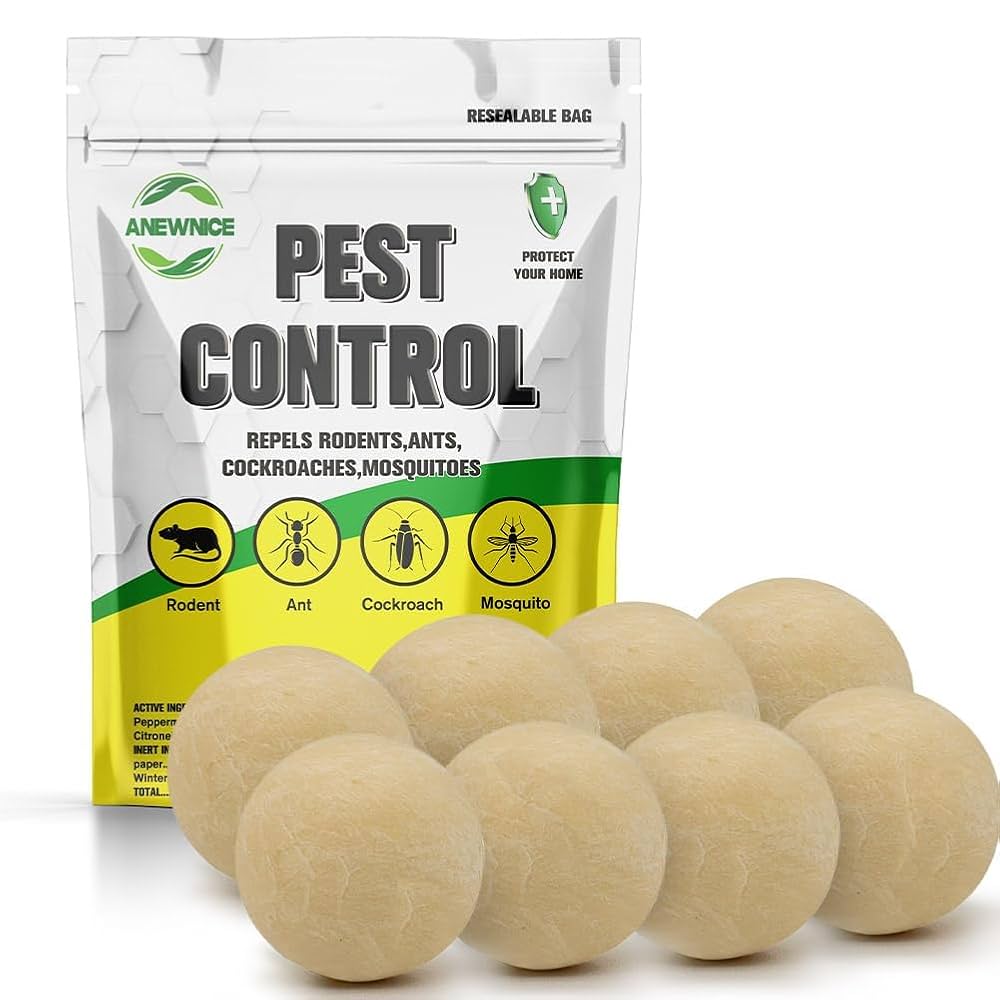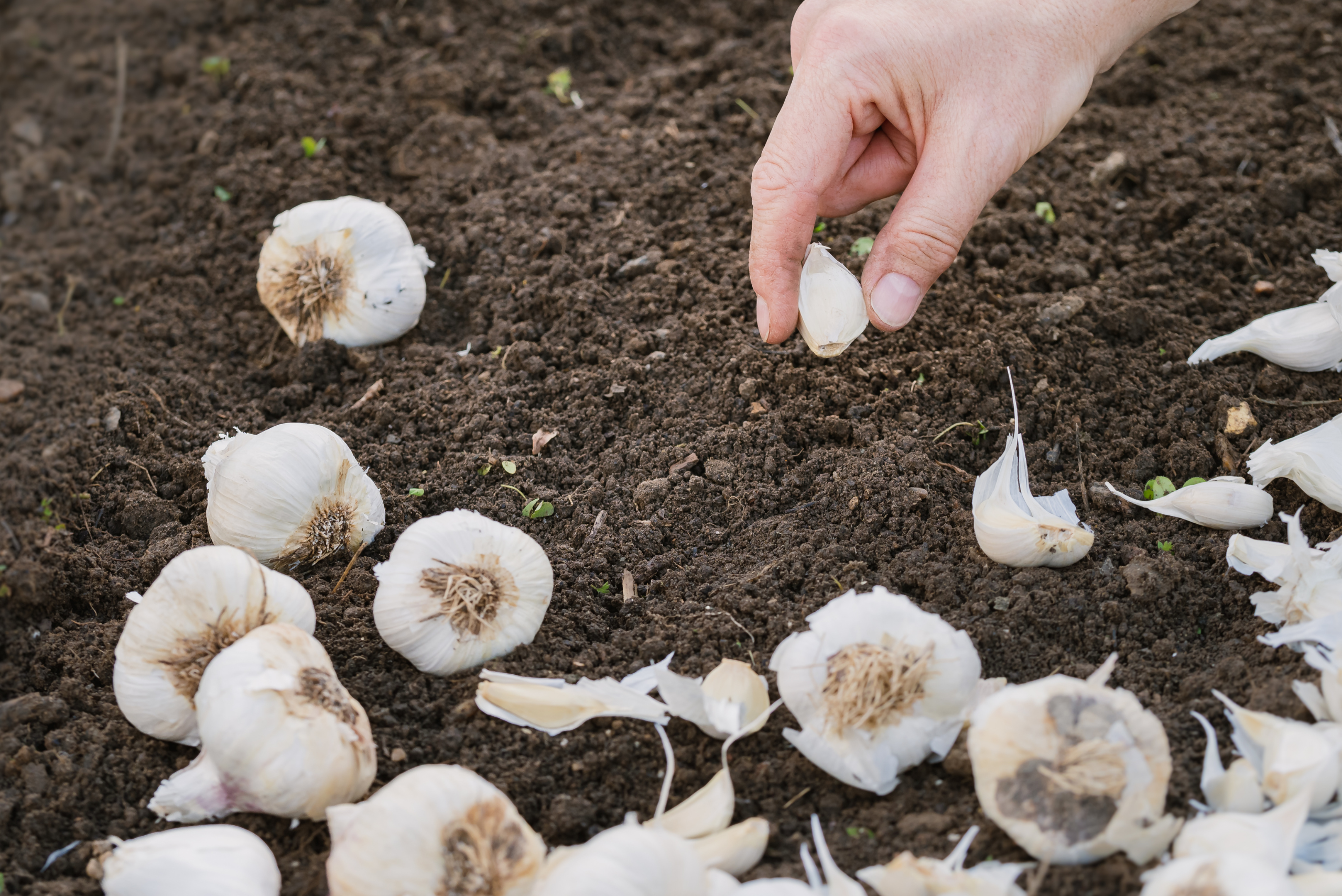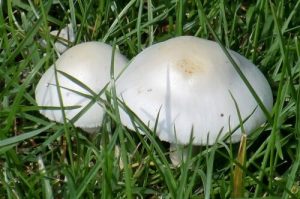Have you ever watched a trail of ants march across your kitchen counter and wondered how to send them packing without resorting to harsh chemicals? You’re not alone.
Many people are searching for natural solutions to keep these tiny invaders at bay. One popular remedy that often pops up is garlic. But does garlic really repel ants, or is it just an old wives’ tale? Imagine a simple, natural method that could help you maintain an ant-free home without the worry of harmful substances around your family or pets.
The idea is tempting, isn’t it? We’ll uncover the truth about garlic’s effectiveness against ants. You’ll learn if this common kitchen ingredient can become your new secret weapon in the battle against these persistent pests. Keep reading to discover how you can reclaim your space in a natural and potentially fragrant way!
Garlic’s Natural Properties
Garlic is renowned for its distinct flavor in culinary dishes. Yet, its natural properties serve more than just taste. Many believe garlic can repel ants. This assumption stems from its powerful chemical compounds and pungent aroma.
Chemical Compounds In Garlic
Garlic contains sulfur compounds. These compounds are allicin, diallyl disulfide, and ajoene. They provide garlic with its sharp taste and smell. Allicin is produced when garlic is chopped or crushed. This compound is known for its antifungal and antibacterial properties. Ants have a strong sense of smell, and these compounds can disrupt their scent trails.
Pungent Aroma And Its Effects
The pungent aroma of garlic can be overpowering. It affects ants by interfering with their communication. Ants rely on pheromones to navigate and find food. The strong smell of garlic can mask these pheromones. This makes it difficult for ants to follow their trails. The aroma acts as a deterrent, pushing ants away from areas where garlic is present.
Ant Behavior And Senses
Understanding ant behavior and senses can be both fascinating and practical, especially when you’re trying to keep them at bay. Ants are tiny creatures, yet their sensory capabilities are quite advanced. They rely heavily on their ability to detect smells and communicate using pheromones, which can influence how effective garlic is as a repellent. Dive into the world of ants and discover how their senses shape their behavior.
How Ants Perceive Smells
Ants have an incredible sense of smell. They use their antennae to pick up various scents in their environment. This ability helps them find food, avoid danger, and navigate their surroundings. If you’ve ever seen ants swarm to a dropped piece of fruit, you’ve witnessed their olfactory skills in action.
Garlic emits a strong odor that can be overwhelming to ants. While humans might enjoy its aroma in cooking, ants find it quite repelling. This is because garlic contains sulfur compounds, which ants tend to avoid. If you’re dealing with an ant problem, placing garlic cloves in strategic locations might disrupt their scent trails and keep them away.
Ant Communication Via Pheromones
Ants communicate using pheromones, chemical signals that convey messages to other ants. These signals can indicate the presence of food, alert others to danger, or even mark territory. You might notice a trail of ants moving in a line; they’re following a pheromone trail left by a scout ant.
Garlic’s strong smell can interfere with these pheromone trails. Imagine trying to hear a whisper in a noisy room—garlic acts like the noise. This interference can confuse ants, making it harder for them to find their way. Have you ever tried to follow a scent to your favorite bakery, only to be led astray by a stronger smell? That’s what garlic does to ants.
So, if you’re tired of ants marching across your kitchen counter, garlic might be your ally. But remember, ants are persistent and have a knack for adapting. What other natural solutions can you think of to outsmart these determined insects?
Garlic As A Deterrent
Garlic’s strong aroma can deter ants, disrupting their scent trails. Its natural compounds make it an effective, eco-friendly repellent. Placing garlic cloves around entry points may help keep ants away without harsh chemicals.
Garlic as a Deterrent Garlic is not just a flavorful addition to your culinary creations; it also holds a surprising secret in pest control. Many homeowners have discovered its potential as a natural deterrent for ants. Imagine walking into your kitchen and finding a trail of ants marching across the countertop. You might wonder if garlic can help keep these pesky invaders at bay. Let’s dive into how garlic works and what science says about its effectiveness.Mechanism Of Repelling Ants
Garlic has a potent aroma that ants find quite unpleasant. The strong scent is due to sulfur compounds, which are the same chemicals responsible for garlic’s distinctive taste and smell. These compounds interfere with the ants’ ability to communicate and navigate, disrupting their pheromone trails. When you crush garlic cloves, the smell intensifies, making it even more effective as a deterrent. Consider placing crushed garlic near entry points or areas where ants are frequently spotted. You might be surprised at how quickly they retreat!Scientific Studies On Garlic’s Effectiveness
Researchers have taken an interest in garlic’s potential as a natural pest control solution. Studies have shown that garlic extracts can have a repellent effect on ants, though results can vary depending on the concentration and method of application. While scientific studies provide valuable insights, they also highlight the need for more research to fully understand garlic’s efficacy against different ant species. This means that while garlic can be a helpful tool, it might not be the ultimate solution for every ant problem. Are you ready to try garlic as a deterrent? It’s an affordable and eco-friendly option. But what if the ants keep coming back? It might be time to explore other natural remedies or consult a pest control expert for more persistent issues.
Credit: www.housedigest.com
Methods To Use Garlic Against Ants
Garlic can deter ants effectively. Its strong smell disrupts their communication. Crush garlic cloves, place them near ant trails, or make garlic spray by boiling cloves in water. This natural method is safe for homes, keeps ants at bay, and avoids chemical pesticides.
Are you tired of ants invading your kitchen or garden? Garlic might be the secret weapon you’ve been overlooking. Known for its pungent aroma and potent properties, garlic can serve as an effective natural repellent. You might already have garlic in your pantry. Why not put it to work against those pesky invaders? Let’s dive into some practical methods to use garlic against ants.Homemade Garlic Spray
Creating a garlic spray is simple and effective. Start by crushing a few garlic cloves and let them steep in water overnight. The next day, strain the liquid and pour it into a spray bottle. Spray this garlic-infused water along ant trails and entry points. The strong scent disrupts their scent trails, making it harder for them to find their way. Have you ever tried using homemade solutions and found them surprisingly effective? This method might be your next success story.Garlic Oil And Its Application
Garlic oil is another option for repelling ants. You can either buy garlic oil or make it by infusing olive oil with crushed garlic cloves. Let the mixture sit for a few days to enhance its potency. Apply garlic oil near ant nests and along pathways. The oil’s scent will deter ants from crossing these barriers. Imagine the satisfaction of knowing you’ve kept ants at bay without harmful chemicals. Are you ready to try it out? Using garlic against ants is not only eco-friendly but also cost-effective. You have the power to protect your space with natural remedies. Why not give garlic a chance to prove its worth?Comparison With Other Natural Repellents
Garlic is often compared to natural repellents like peppermint and vinegar in its effectiveness against ants. Its strong smell can deter ants from entering spaces, providing a natural alternative to chemical solutions. Unlike some repellents, garlic is readily available and easy to use.
Garlic has long been considered a natural solution for repelling ants. But how does it compare to other natural repellents? Understanding the effectiveness of various options can help you choose the best method for your ant problem. Let’s explore how garlic stands against lemon, vinegar, and other alternatives.Lemon
Lemon is a common household ingredient. Its strong citrus smell is known to deter ants. The acidic nature disrupts their pheromone trails. This confuses the ants and keeps them away. Lemon juice can be applied directly to surfaces. It works best when used fresh. Garlic, on the other hand, offers a different scent. It targets ants through its sulfur compounds. Both can be effective, but lemon offers a refreshing scent.Vinegar
Vinegar is another popular choice for repelling ants. Its pungent smell masks ant trails. It disrupts their ability to communicate. Vinegar can be mixed with water for a spray. It works well on countertops and floors. Garlic also repels ants, but with a distinct odor. Vinegar is often preferred for its versatility. It cleans surfaces while repelling ants. Garlic provides a more potent, direct approach.Other Alternatives
There are other natural repellents worth considering. Cucumber peels are known to deter ants. Essential oils, like peppermint, can repel them too. Diatomaceous earth provides a physical barrier. These alternatives vary in effectiveness. Garlic remains a strong contender. Its compounds actively repel ants. Other methods might offer different benefits. Combining solutions can enhance results.Effectiveness And Limitations
Natural repellents offer varying levels of effectiveness. Lemon and vinegar work well for short-term relief. Garlic provides a longer-lasting solution. Its odor is potent and persistent. Some people may dislike the strong smell. Other alternatives might be less intrusive. They may require frequent application. Garlic proves effective but has its limitations. Understanding each option helps in selecting the best repellent.
Credit: www.amazon.com
Safety And Environmental Impact
Garlic is a natural ant repellent, praised for its safety and eco-friendliness. Using garlic keeps chemicals away from your home and garden. This approach is appealing for those mindful of health and the planet. Let’s explore the benefits and effects of using garlic to repel ants.
Non-toxic Benefits
Garlic offers a non-toxic alternative to chemical pesticides. It is safe for children and pets around the house. Unlike chemicals, garlic does not leave harmful residues. This makes it a great choice for a cleaner environment. Homeowners seeking non-toxic solutions often choose garlic.
Impact On Non-target Species
Garlic primarily targets ants without harming most other creatures. It is gentle on beneficial insects like bees and butterflies. This selective impact helps maintain a healthy garden ecosystem. Yet, garlic’s smell may deter some non-target pests too. It’s crucial to monitor its effects on your local wildlife.
Practical Tips For Home Use
Garlic is a natural ant deterrent. Its strong scent confuses ants, disrupting their scent trails. Crush a few cloves and place them near ant entry points for effective results. This simple method helps keep your home ant-free without harmful chemicals.
Practical Tips for Home Use Using garlic to repel ants can be an effective and natural solution for your home. It’s simple to implement and requires ingredients you likely already have in your kitchen. Let’s explore some practical tips to make the most of garlic in your fight against ants.Combining Garlic With Other Strategies
While garlic alone can deter ants, combining it with other natural methods can enhance its effectiveness. Consider placing crushed garlic cloves near entry points and pairing it with vinegar spray. This dual approach not only confuses ants but also creates a robust barrier against them. Another tactic is to mix garlic with essential oils like peppermint or tea tree oil. These oils have strong scents that ants dislike, and when combined with garlic, they create a potent ant-repelling mixture. You can soak garlic in these oils and then use a spray bottle to apply the mixture around your home.Monitoring And Adjusting Methods
Once you’ve set your garlic defenses, keep an eye on ant activity. Are they avoiding the areas you’ve treated? If you notice ants still finding their way in, it might be time to adjust your strategy. Try experimenting with different garlic concentrations. Sometimes, increasing the amount of garlic or mixing it with additional deterrents can boost its effectiveness. Regularly refreshing your garlic placements can also help maintain its potency. Don’t forget to check for new entry points. Ants are persistent and might find alternative routes. By staying vigilant and ready to adapt, you can ensure your home remains ant-free. Have you tried using garlic in your home? How did it work for you? Share your experiences or any unique tips you’ve discovered.
Credit: www.manmadediy.com
Frequently Asked Questions
What Insect Does Garlic Keep Away?
Garlic effectively repels mosquitoes, ticks, and fleas. Its strong scent deters these insects. Planting garlic in your garden or using garlic sprays can help create a natural barrier against these pests. This eco-friendly solution also reduces the need for chemical insecticides, promoting a healthier environment.
What Smell Do Ants Absolutely Hate?
Ants absolutely hate the smell of vinegar, peppermint, and citrus. These scents disrupt their scent trails. Using essential oils like tea tree or eucalyptus can also repel ants effectively. Apply these natural deterrents around entry points to keep ants away from your home.
How Do Ants Feel About Garlic?
Ants generally dislike garlic due to its strong smell. Garlic acts as a natural repellent for ants. They avoid areas treated with garlic, making it an effective pest control method. Use crushed garlic cloves near entry points to deter ants from invading your space.
What Scent Turns Ants Away?
Peppermint oil effectively repels ants. Its strong scent disrupts their scent trails. Use a few drops on entry points. Other scents like lemon, eucalyptus, and cinnamon also deter ants. These natural solutions create a barrier, keeping your home ant-free.
Conclusion
Garlic can help keep ants away. Its strong smell confuses them. Many people find garlic a simple solution. Yet, results may vary. Some ants might not be bothered. Try it and observe the outcome. It’s an easy and natural method to test.
Remember to maintain cleanliness. Ants love food crumbs and spills. Garlic works best with a clean environment. If ants persist, consider other solutions. Keep experimenting until you find what works best. Every home is different. Stay patient and persistent.






